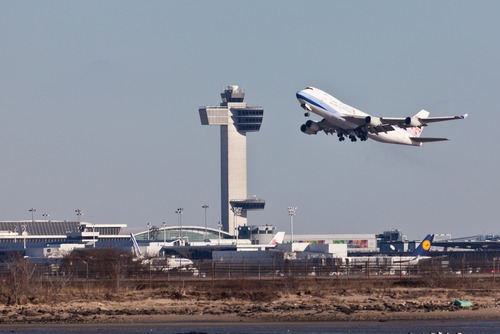
Bipartisan legislation that would provide sweeping, transformational reform to the Federal Aviation Administration (FAA) was recently introduced in the House of Representatives.
The 21st Century Aviation Innovation, Reform, and Reauthorization (AIRR) Act aims to cut red tape, enhance air travel safety for consumers, invest in unmanned aircraft systems (UAS) and airport infrastructure, and separate air traffic control (ATC) responsibilities from the federal government.
The bill is sponsored by Transportation and Infrastructure Committee Chairman Bill Shuster (R-PA), Aviation Subcommittee Chairman Frank LoBiondo (R-NJ), U.S. Reps. Sam Graves (R-MO), Paul Mitchell (R-MI), Colleen Hanabusa (D-HI) and Kyrsten Sinema (D-AZ).
“This bill is about giving all Americans the safe and efficient, 21st century aviation system they deserve while keeping America the leader in aviation,” Shuster said. “We have the busiest aviation system in the world, and though it’s safe, it’s also inefficient, costly, and unable to keep up with growing demand or developing technology.”
One aspect of the bill, air traffic control reform, would involve creating a not-for-profit corporation to operate the nation’s air traffic control services that would be separate from the FAA. The FAA has experienced difficulties with implementing its modernization effort known as NextGen, which has cost more than $7 billion so far, but which lawmakers say has produced few benefits for taxpayers and consumers. Lawmakers argue that privatizing the air traffic control system would reduce government bureaucracy and funding uncertainties, and would allow the FAA to focus on safety.
“The 21st Century AIRR Act puts American innovation, and the traveling public first,” Shuster said. “We met and worked with a large number of stakeholders and members of Congress to produce this bill, and incorporated numerous ideas and changes to improve the final product.”
The bill is expected to be marked up by committee this week.